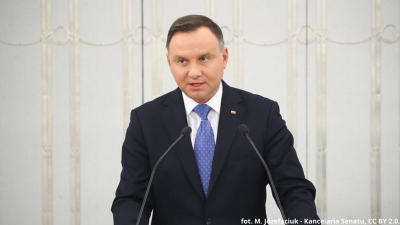
The HFHR sent a petition to the Senate, requesting the launch of works on new rules governing court orders extending the length of placements at youth shelters.
Violation of right to personal freedom
In June 2015, the ECtHR entered a judgment in the case Grabowski v. Poland, ascertaining that Poland had violated the applicant’s right to personal freedom (Convention’s Article 5). Maksymilian Grabowski, aged seventeen at the time, was arrested by the police on the charge of robbery. A court started proceedings in his case and placed him at a youth shelter but failed to review the legality of the placement order despite a proper motion having been lodged by Mr Grabowski’s defence lawyer. The court decided that the Juvenile Justice Act did not require a separate order to extend the period of a juvenile’s placement at a youth shelter after the case is sent to trial. In the consequence of this decision, the man spent five more months at the shelter than he was legally supposed to.
Under the Juvenile Justice Act, a period of placement at a youth shelter preceding a case going to trial may not be longer than three months. After the case goes to trial, there is no requirement of a separate court order extending the placement period. A family court handling the case must only ensure that the placement does not exceed a period of one year. The national law has not been amended after the ECtHR’s ruling even though the Court indicated that courts should periodically review whether or not grounds for a juvenile’s placement still exist.
Further changes of law necessary after Strasbourg Court’s judgment
Despite the fact that nearly two years have passed since the delivery of the ECtHR’s judgment, no proper amendment to the national law has been made to meet the Court’s guidelines.
In order to promote standards laid down in the judgment, Polish authorities sent them to courts and organised courses on the rights of juveniles. According to the Government’s declarations, a modification of the Organisational Rules of Common Court should serve as a safeguard against violations such as the one identified by the ECtHR in Grabowski.
However, in the HFHR’s assessment, an amendment to a law rather than organisational rules is needed to ensure that the rights of juveniles placed at shelters are better protected. This is because the Council of Europe’s Committee of Ministers was right in the assertion that measures adopted by Poland are still insufficient for a full implementation of the Court’s judgment and that further legislative changes are needed to the Juvenile Justice Act.
Worryingly, there are currently no concrete legislative proposals in this respect. In effect, not only the Committee of Ministers has not completed its review of Poland’s implementation of the Grabowski judgment but Poland is still at risk of losing similar cases before the ECtHR.
The ECtHR’s judgment may be accessed here.
A report on the judgment’s implementation is available here.


